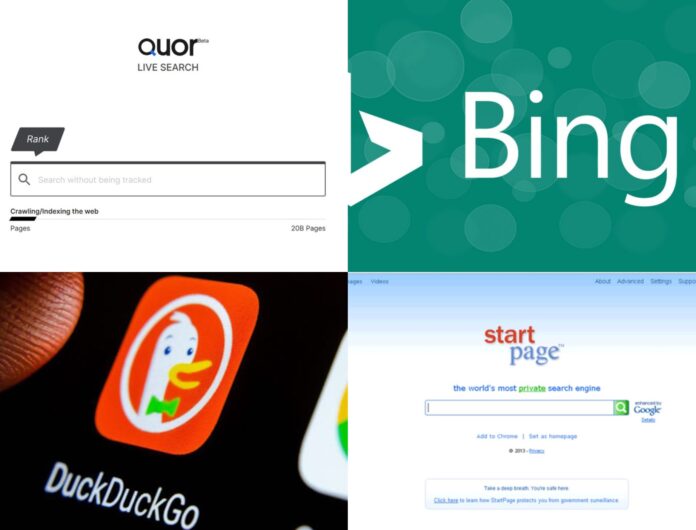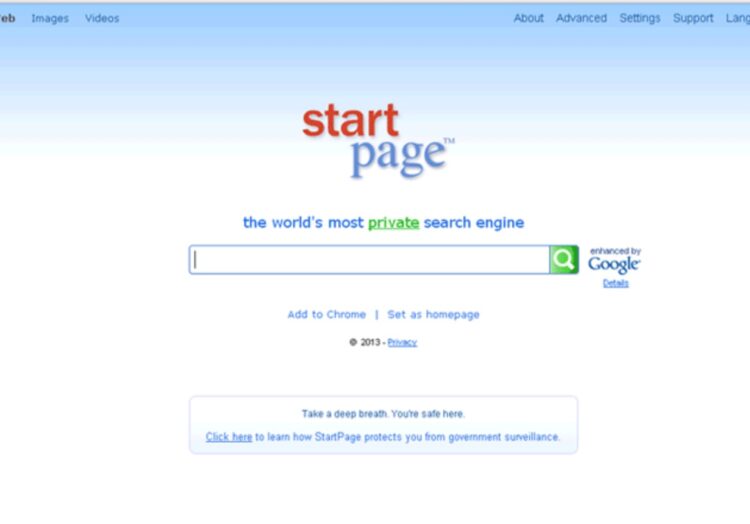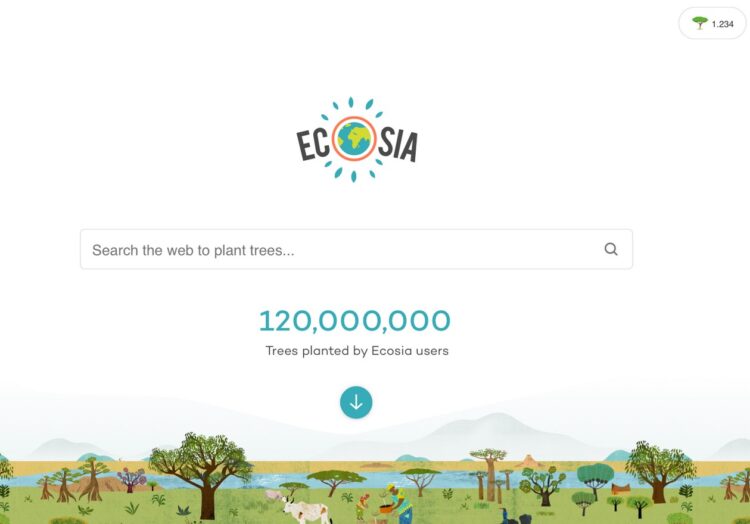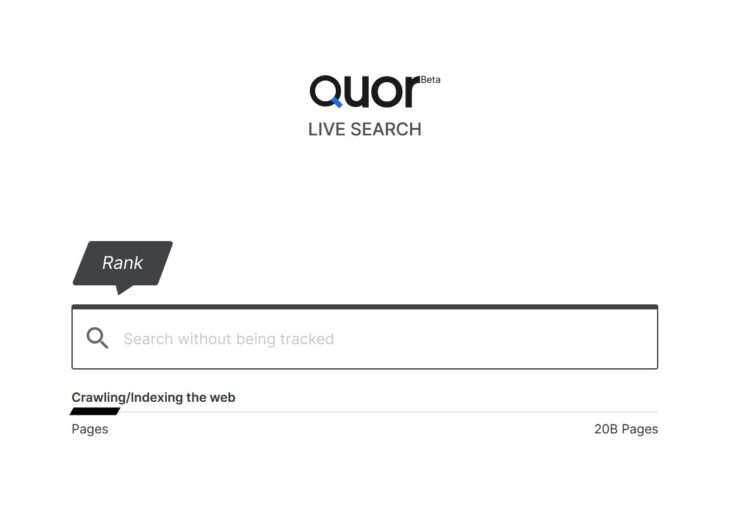
We all are aware of the different search engines available online. Now, these search engines give you the results for your queries. However, you may not be aware of what they are taking in return. The website you visit to browse or consume content may have cookies and trackers that manage to collect your data relating to your search query, preferences and choices you make online. These data are valuable for the prospective advertisers who now have the power to influence your buying decision based on the data collected from these website trackers.
1. Google

Google says that it only collects information only after seeking permission from the users. It helps them manage enquiries and requests. It also provides advertisers the opportunity to customize their promotional content. The usage of cookies is not unknown to the users of Google. There are analytics cookies and third party cookies. Then there are functional cookies that perform a completely different task of completing online forms and login information among several other responsibilities.
Google does not only collect data from its search engine but also several other tools such as YouTube Google assistant, Android devices, Gmail, Google maps and G-suite. In addition to this, there are many online crackers around The World wide Web that make it possible for Google to customize ads and other promotional content which are a major source of revenue for this tech giant.
Hence, if you are looking for a 100% safe and secure search engine, Google with all its spread out services and platforms does not exactly fit the bill.
2. Is Duckduckgo ensuring privacy?

Experts are of the opinion that Duckduckgo might be one of the safer search engines in the world. Given the fact that it does not save any of your search history, it can be an advantage for your privacy. But that also means that the search results will be less personalized and the overall internet experience is going to be a little less convenient at times.
Duckduckgo claims to not store any of your online information whether to personalize your searches or even to present any customized advertisements in front of you. However, two for extend the privacy of your searches; you will have to install several complementary Duckduckgo products.
The search engine also brags about no targeted ads. There is no technology based on the kinds of searches that you have performed to link advertisements and other promotional content to your future searches. But all that comes at a cost of a less than pleasant browsing experience and little to no personalization.
3. Start page – your new confidant

If you are looking for a search engine that lets the tracking features of Google, the Start page is for you. But then you should also know that this browser borrows results from Google. It means that you are using Google and its various search results but without tracking. This browser is not going to track your IP address or even serve any tracking cookies.
but then we are all aware of the reach of Google. This search engine still uses the results from Google’s pages and we don’t exactly have the proper means to find out whether it is 100% secure or not.
4. Ecosia, can be private

Ecosia is a private search engine or so it claims to be. However, if you read their privacy policy it is quite apparent that they are not as privacy-oriented as they portray themselves to be. The thing that you will be able to locate right off the bat is that they collect data. According to their website, this data and information is going to be used to provide improved web services to their uses. After 7 days of usage all the personal information including the IP addresses are deleted from the main servers. Also, their search results are powered by Bing. This simply means that they are going to share a little bit of information with their partner such as search terms, user agent strings, IP addresses and similar data. Additionally, there is also a setting option that can be enabled which restricts tracking. This can be done in the browser and the client ID will be disabled automatically. But then, are you absolutely certain that Ecosia is a 100% private search engine browser?
5. Bing has been there and done that

Bing is also one of the most popular search engines in the market today grabbing the second largest position in the world. It has over 6% market share but because it is the closest alternative to Google, we can say that it has to follow along similar lines. It has a family of features like currency conversions, time and knowledge panels, translation and the like. But do we actually know how private it is? Bing is not a privacy-focused search engine. It is popular because it gets you personalized results. This is only possible when there is significant information tracking and personalized and relevant results are made possible.
6. Quor, for a search that is secure?

This is an interesting pick of the day. Quor is an all new search engine that is characterized by several features focused on privacy search as well as premium content. In a real-time test, Quor and Google were compared and the number of cookies placed on the device of the user was revealed. Google used close to 226 cookies while Quor used 0 cookies. With Quor, its creators have moved ahead and away from traditional indexing technologies. Advanced quantitative analysis and deep learning lend this search engine a unique approach to showcase websites and web content. Different versions and services of this search engine are going to be available by the middle of this year, one of them being the value-based search. Users can now know the value of the content/news thanks to the pricing engine.
Final thoughts
It is quite clear that every search engine out there at the moment uses some sort of tracking and some kind of collection procedures to gather data about their uses. Some of the search engines are safer than others and they all can cater to a wide variety of uses. At the end of the day, it is entirely going to an individual’s choice as to how much information they are willing to disseminate in exchange for more personalized and relevant search results.











